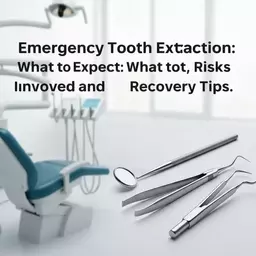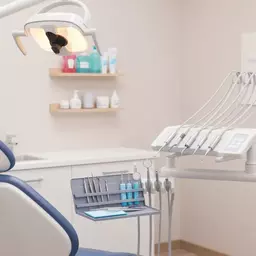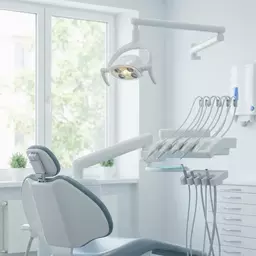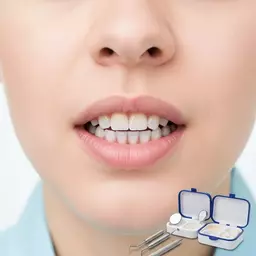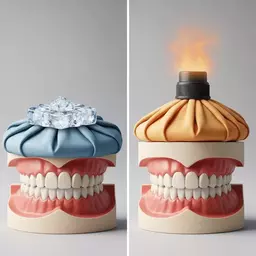Home Remedies for Nighttime Toothache

When your tooth starts throbbing in the quiet stillness of the night, it can feel like a nightmare. Knowing how to effectively manage nighttime dental pain can provide comfort and peace of mind—so you can get the restful sleep you deserve.
What You Will Learn
- Recognize the urgency of nighttime dental pain and its potential serious causes.
- Explore effective home remedies that can provide immediate relief.
- Understand common causes of nighttime dental discomfort, such as cavities and infections.
- Learn when to seek professional dental care to prevent further complications.
- Discover essential tips for maintaining your dental health and preventing emergencies.
- Emphasize the importance of establishing a relationship with your dentist for ongoing care.
Understanding Nighttime Dental Pain & Relief Strategies
This visual outlines the common causes of nighttime dental pain and effective home remedies, emphasizing when to seek professional help.
Urgency of Nighttime Dental Pain
- ★ Severe toothache waking you up
- ★ Swelling or redness around gums
- ★ Throbbing pain that doesn't subside
These symptoms demand immediate attention to prevent further complications.
Common Causes of Nighttime Pain
- ✓ Cavities or tooth decay
- ✓ Gum disease (gingivitis)
- ✓ Teeth grinding (bruxism)
- ✓ Infections or abscesses
Identifying the cause helps in choosing the right approach to treatment.
Effective Home Remedies
- ● Saltwater rinses
- ● Cold compresses
- ● Clove oil (natural analgesic)
- ● Garlic (antibacterial properties)
These offer temporary relief while waiting for professional care.
When to Seek Professional Help
- ⚠ If pain persists or worsens despite home remedies
- ⚠ Signs of infection (fever, severe swelling)
- ⚠ Uncertainty about the cause or severity of pain
Home remedies are temporary; professional diagnosis and treatment are crucial for long-term health.
Understanding Dental Pain Relief Needs at Night
If you’ve ever experienced dental pain at night, you know just how urgent and distressing it can feel. The silence of the night amplifies every throb, making it harder to find relief or even sleep. Understanding your dental pain needs during these hours is crucial, as it allows you to respond quickly when discomfort strikes!

Nighttime dental pain often demands immediate attention, especially if it disrupts your sleep. That’s why I always emphasize the importance of having a plan in place. You never know when an emergency might arise, and knowing your options can make all the difference!
The Urgency of Nighttime Dental Pain
Many patients reach out to me at eDentistNearMe, sharing their stories of midnight toothaches. These situations can be quite unnerving! It’s essential to recognize that dental pain during the night can sometimes signal a more serious problem, such as an abscess or a cracked tooth.
- Severe toothache that wakes you from sleep
- Swelling or redness around the gums
- Throbbing pain that doesn't subside
Each of these symptoms deserves attention. Ignoring them can lead to more significant dental issues down the line, which is why I advocate for immediate action when faced with such pain.
Why Home Remedies Are a Preferred Choice
When dental pain strikes at night, it’s common for people to seek out home remedies. They can provide quick, accessible relief while waiting for a dental appointment. Many of my patients appreciate that these remedies are often easy to find in their own kitchens!
- Availability: Most remedies are household staples.
- Cost-effective: They save you from expensive dental visits.
- Immediate relief: Home remedies can act fast.
While home remedies can serve as a temporary solution, I always remind patients that they should not replace professional care. If your pain persists, don't hesitate to consult a licensed dental professional!
Common Causes of Nighttime Dental Pain
To effectively address dental pain, it's important to understand its potential causes. Many factors can contribute to discomfort at night, ranging from dental cavities to more complex issues. Here are some common causes:
- Cavities or tooth decay
- Gum disease or gingivitis
- Teeth grinding (bruxism)
- Infections or abscesses
Each cause requires a different approach to treatment. Understanding your specific situation can help in finding the most effective remedy. Remember, knowledge is power when it comes to managing your dental health!
Did You Know?
According to a study, nearly 30% of adults experience nighttime dental pain at some point in their lives. This highlights the importance of being prepared and having a plan for immediate relief.
Summarizing Effective Home Remedies for Dental Pain Relief
Managing nighttime dental pain can feel daunting, but with the right home remedies, you can find relief. It's essential to remember that while these methods can be helpful, they are not substitutes for professional dental care. At eDentistNearMe, we aim to connect you with the best dental professionals who can provide urgent care when you need it most. Here are some key takeaways for effectively managing your pain:
- Quick Relief Options: Remedies like saltwater rinses and cold compresses can offer immediate comfort.
- Natural Ingredients: Items such as clove oil and garlic not only ease pain but also have antibacterial properties.
- Know When to Seek Help: If your pain persists or worsens, it’s crucial to consult with a dentist promptly.
Understanding these points can empower you to take action when faced with dental discomfort at night. The earlier you address the pain, the easier it can be to manage! For more general information on toothaches, you can refer to reputable sources like the Cleveland Clinic and the American Dental Association (ADA), which offer valuable insights into dental health.
Empowering Yourself with Knowledge and Safety Precautions
It's vital to equip yourself with knowledge about home remedies while ensuring you follow safety precautions. Here are some essential tips:
- Research Remedies: Always look up information on effectiveness and safety before trying a home remedy.
- Be Mindful of Allergies: If you have known sensitivities, check that any remedy you consider won’t cause adverse reactions.
- Consult a Professional: For persistent pain or if you're uncertain about a remedy, it's best to reach out to your dentist.
By taking these precautions, you can navigate your dental pain relief journey with confidence! Remember, safety first. For additional health guidance, consider exploring resources from organizations like the Mayo Clinic.
Frequently Asked Questions About Nighttime Dental Pain
- Q: What are the most common causes of nighttime dental pain?
- A: Nighttime dental pain is often caused by cavities, gum disease (gingivitis), teeth grinding (bruxism), or infections/abscesses. The change in body position and reduced distractions at night can make the pain more noticeable.
- Q: When should I seek professional help for nighttime dental pain?
- A: You should seek professional help if the pain is severe, persists despite home remedies, if you experience swelling or redness around the gums, or if you have any signs of infection like a fever. Home remedies offer temporary relief but are not a substitute for professional diagnosis and treatment.
- Q: What immediate home remedies can I use for temporary relief?
- A: Effective home remedies include saltwater rinses to reduce inflammation, cold compresses applied to the outside of the cheek, clove oil (a natural analgesic), and garlic (known for its antibacterial properties). These can help manage pain until you can see a dentist.
- Q: Can teeth grinding cause nighttime dental pain?
- A: Yes, teeth grinding, also known as bruxism, is a common cause of nighttime dental pain. It can lead to jaw pain, headaches, and tooth sensitivity or pain due to the excessive force exerted on the teeth.
- Q: How can I prevent nighttime dental pain?
- A: Preventing nighttime dental pain involves prioritizing your overall oral health. This includes regular dental check-ups (at least twice a year), maintaining good oral hygiene (brushing and flossing consistently), and addressing any dental issues like cavities or gum disease promptly. Establishing a good relationship with your dentist for ongoing care is also crucial.
Encouragement to Prioritize Dental Health
Your dental health is incredibly important, and taking proactive steps can help prevent future pain. Incorporating simple preventative measures into your routine can make a significant difference. Here’s how you can prioritize your oral health:
- Regular Check-ups: Schedule visits to your dentist at least twice a year to monitor your dental health.
- Good Oral Hygiene: Maintain a consistent brushing and flossing routine to prevent issues before they arise.
- Educate Yourself: Stay informed about dental health practices that can help protect your teeth.
At eDentistNearMe, we believe that informed patients are empowered patients! By taking these steps, you’re setting the stage for long-term dental health.
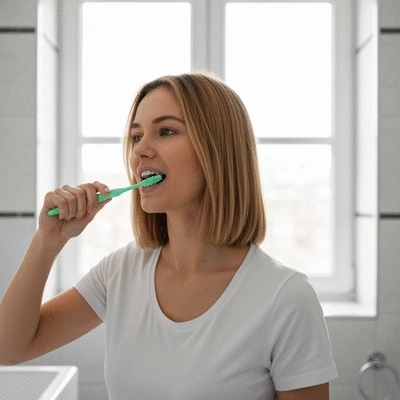
Connecting with Your Dental Professional for Long-term Care
Building a relationship with your dentist can make all the difference in managing your dental health. Here are some ways to stay connected:
- Open Communication: Share your concerns and ask questions during appointments to build trust.
- Utilize Online Resources: Many practices, including ours, offer online consultations for convenience and accessibility.
- Follow-Up Visits: Don’t hesitate to schedule follow-up appointments if you experience ongoing issues.
Your dental health deserves attention and care! At eDentistNearMe, we’re here to help you find the right resources and professionals for your needs.
Recap of Key Points
Here is a quick recap of the important points discussed in the article:
- Recognize Symptoms: Severe toothaches, swelling, and persistent pain at night require immediate attention.
- Home Remedies: Quick relief options like saltwater rinses and clove oil can provide temporary comfort but should not replace professional care.
- Understand Causes: Common causes of nighttime dental pain include cavities, gum disease, and teeth grinding.
- Prioritize Dental Health: Regular check-ups and good oral hygiene can help prevent future dental issues.
- Consult a Professional: If pain persists or worsens, seek help from a dentist promptly.

